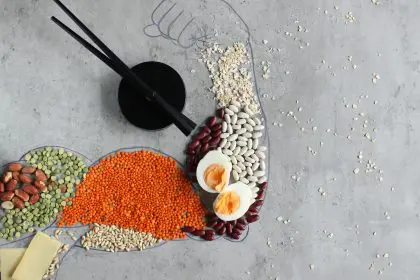Turning 30 is a major milestone that brings about significant life changes, including a shift in how your body reacts to weight loss. While many find it easier to shed pounds in their 20s, weight loss in your 30s can feel more challenging due to various physical changes. Understanding the factors influencing weight gain during this decade and adopting a tailored strategy can help you achieve your health and fitness goals.
Understanding the challenges of weight loss in your 30s
As we age, our metabolism naturally slows down, leading to a decrease in the number of calories burned at rest. Dr. Christopher Thompson, a professor of Medicine at Harvard Medical School, explains that adults lose about 3 to 8 percent of their muscle mass every decade after their 20s. This loss of muscle, often coupled with hormonal changes, contributes to weight gain and makes it harder to lose fat. Fluctuations in estrogen and progesterone during your 30s can cause shifts in fat distribution, particularly around the abdomen.
For women who have children in their 30s, pregnancy-related changes to fat storage can persist postpartum. Additionally, the stress associated with balancing career, family, and societal expectations can increase cortisol levels, which is known to promote fat storage, especially in the abdominal area.
So here are 10 effective tips for safe weight loss
Though losing weight in your 30s can present challenges, it is definitely achievable with a smart approach. Here are ten practical tips to guide you on your journey:
- Prioritize protein: Eating enough protein helps with satiety and muscle preservation. Aim for 1 to 1.2 grams of protein per kilogram of body weight each day to support metabolism and prevent muscle loss.
- Fill your plate with fiber: Fiber-rich foods like fruits, vegetables, and whole grains can help keep you feeling fuller for longer. Aim for 25 to 30 grams of fiber each day to improve digestion and control appetite.
- Read food labels and cook at home: Being mindful of what you’re consuming is crucial. Cooking at home allows you to have full control over your ingredients and avoid hidden sugars and unhealthy fats often found in takeout and processed foods.
- Commit to strength training: Strength training is essential in your 30s to maintain muscle mass and boost metabolism. Aim for at least two to three sessions of resistance training each week, targeting different muscle groups.
- Get your steps in: Walking is a low-impact way to increase calorie burn. Aim for 7,000 to 10,000 steps per day to enhance your cardiovascular health and aid weight loss.
- Practice mindful eating: Slow down and focus on your meals to avoid overeating. Choose nutrient-dense snacks like fruits, vegetables, and nuts instead of processed or sugary foods.
- Shift your mindset: Set realistic and attainable goals. Understand your motivations for weight loss and take a balanced approach that works for your body and lifestyle, rather than focusing on achieving a specific number on the scale.
- Stay hydrated: Drinking enough water is essential for weight management. Aim for at least 11.5 cups of water per day, and remember that thirst can often be mistaken for hunger.
- Manage stress and sleep: High stress levels can hinder weight loss. Incorporate stress-reduction techniques such as yoga, meditation, or deep breathing exercises. Aim for 7 to 9 hours of sleep each night to support hormone balance and metabolism.
- Embrace consistency over perfection: Weight loss is a journey, not a quick fix. Focus on building sustainable habits that support long-term health. Consistency in exercise and nutrition is key to seeing results.
A healthier future starts today
Weight loss in your 30s may feel more challenging, but with a strategic approach, it’s entirely achievable. By focusing on balanced nutrition, strength training, and self-care, you can overcome the challenges of this decade and reach your fitness goals. Remember that the journey is about creating a healthier lifestyle, not just a number on the scale.
Take it one step at a time, listen to your body, and celebrate your progress—no matter how small. With consistency, patience, and a commitment to your well-being, you can thrive in your 30s and beyond.















